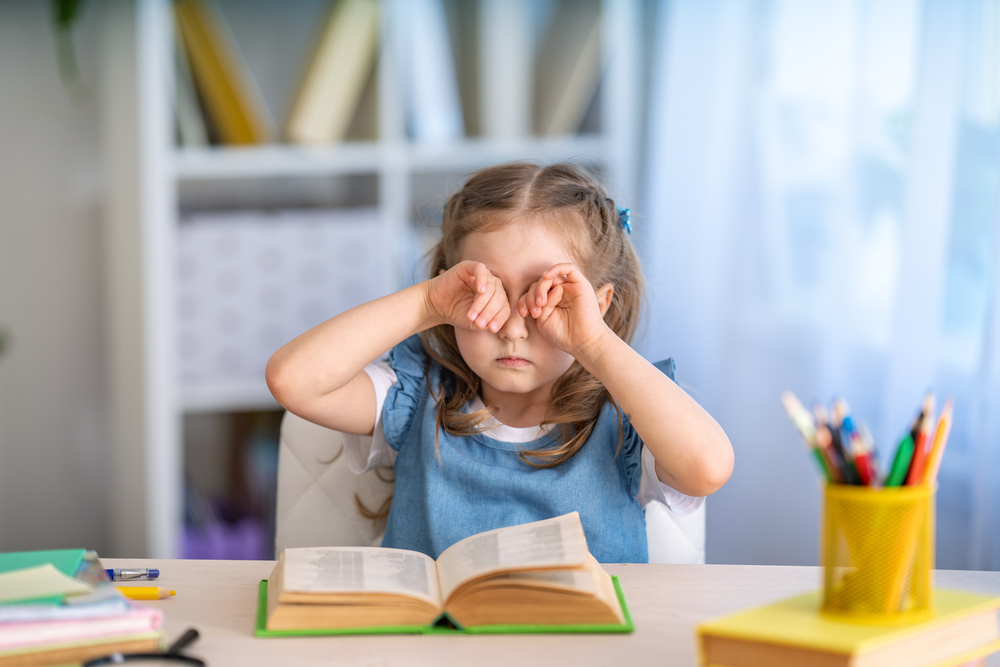
Having good vision is crucial for children's academic success. The ability to see clearly and comfortably is essential for tasks like reading, writing, and focusing in the classroom. When a child's vision is impaired, it can significantly impact their learning and overall school performance. Addressing vision problems early on is key to ensuring children have the best possible chance of thriving in school. Regular pediatric eye exams can help detect and treat vision issues before they become a significant barrier to learning.
Common Eye Conditions Children Can Experience
Some of the most common vision problems in children include:
Refractive errors: Conditions like nearsightedness (myopia), farsightedness (hyperopia), and astigmatism can make it difficult for children to see clearly at various distances.
Amblyopia (lazy eye): This occurs when one eye develops poorer vision than the other, often due to a mismatch in the focusing power between the two eyes.
Strabismus (eye misalignment): When the eyes are not properly aligned, it can cause double vision, eye strain, and other vision-related problems.
Convergence insufficiency: This condition makes it challenging for the eyes to work together when focusing on near objects, which can lead to headaches, eye fatigue, and difficulty with reading and schoolwork.
These and other vision problems can often go undetected, as children may not realize that the way they see is not "normal." Regular pediatric eye exams are essential for identifying and addressing these issues.
How Undetected Vision Problems Can Impact Learning
When a child's vision problems go undetected, it can have a significant impact on their academic performance and overall learning experience. Blurred vision or eye strain can make it challenging for a child to focus on text, leading to poor reading comprehension and writing skills. Vision problems can also impair a child's ability to track moving objects, which can impact their performance in physical education, sports, and other activities. Additionally, frustration and fatigue caused by vision problems can lead to behavioral problems in the classroom, as the child struggles to keep up with their peers.
The Role of Pediatric Eye Exams in Early Detection and Treatment
Routine pediatric eye exams are essential for identifying and addressing vision problems in children. These comprehensive examinations go beyond just checking for refractive errors, such as nearsightedness or farsightedness. They also assess eye muscle coordination and alignment, depth perception, color vision, and overall eye health.
By detecting vision issues early, pediatric eye exams allow for prompt intervention and treatment, which can make a significant difference in a child's academic performance and overall development.
If a vision problem is identified, your optometrist can recommend appropriate treatments, such as:
Prescription glasses or contact lenses
Patching or other treatments for amblyopia
Monitoring and management of other eye conditions
By addressing these issues early, parents and educators can work together to ensure that the child has the best possible support and resources to succeed in school.
When to Schedule a Pediatric Eye Exam for Your Child
The American Optometric Association recommends that children have their first comprehensive eye exam at 6 months of age, followed by additional exams at 3 years old, 5 years old (before starting kindergarten), the annually thereafter.
These regular checkups are essential for monitoring a child's vision development and catching any problems early on. Even if your child does not seem to be experiencing any vision-related issues, it's important to schedule these routine exams to ensure their eyes are healthy and functioning properly.
If you notice any signs of vision problems, such as squinting, frequent headaches, or difficulty with reading or schoolwork, it's important to schedule an eye exam as soon as possible.
Optimizing Your Child's Vision with Heights Vision Specialists
Investing in your child's vision through regular pediatric eye exams is one of the most important steps you can take to support their academic success. By identifying and addressing vision problems early on, you can help ensure that your child has the tools they need to thrive in the classroom and beyond.
At Heights Vision Specialists, we are dedicated to providing comprehensive pediatric eye care to ensure your child's vision is optimized for academic success. Contact our office in Houston, Texas, by calling (832) 360-2020 to schedule an appointment and take the first step towards supporting your child's educational journey.













